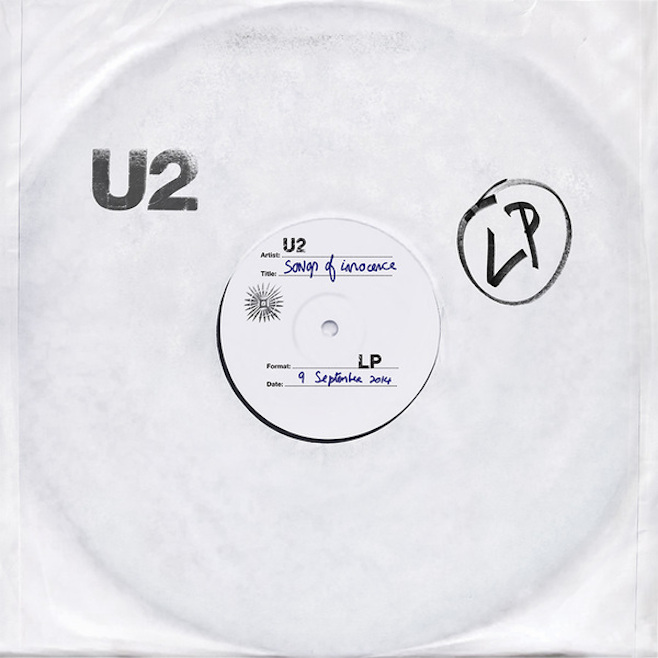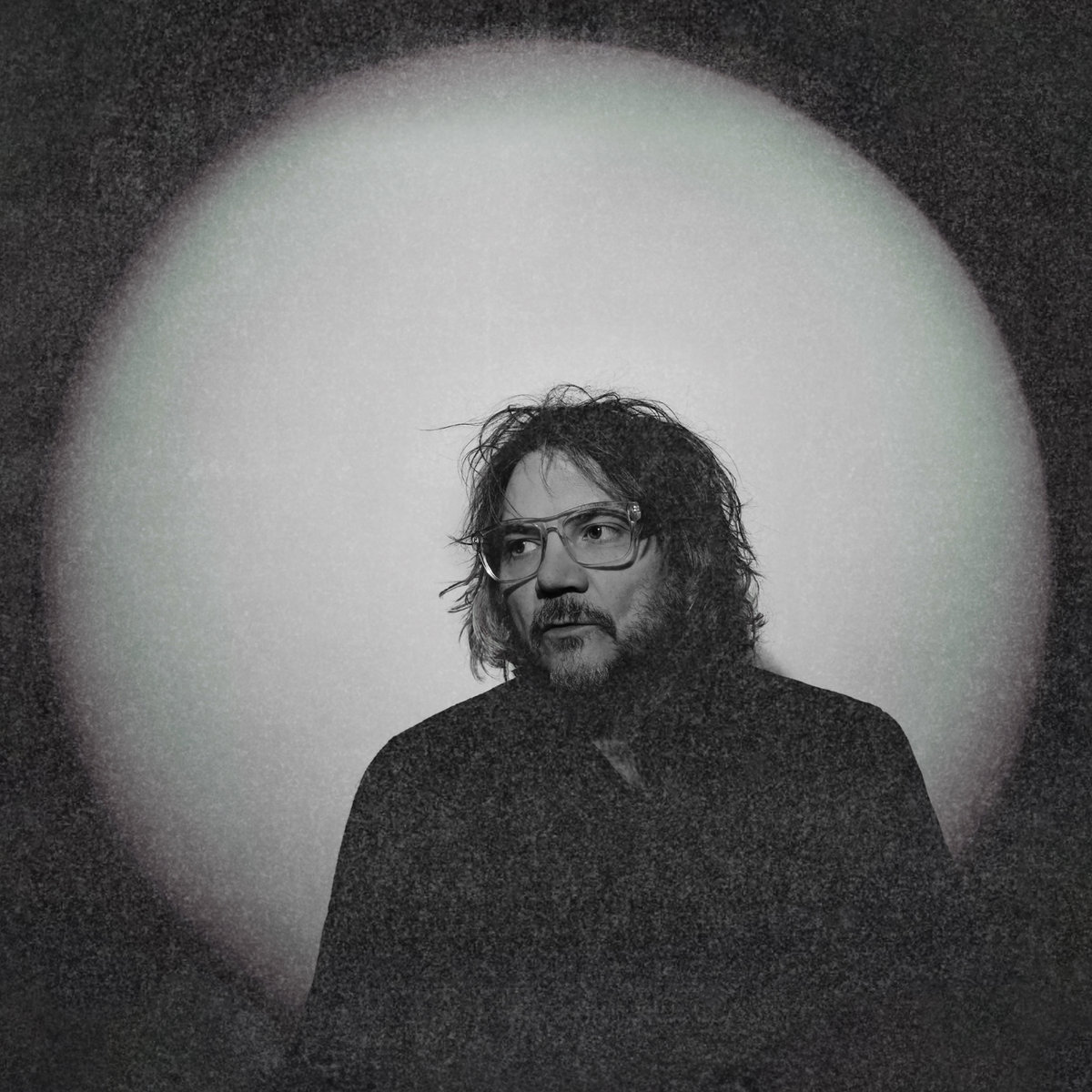On Tuesday afternoon, you could do a Twitter search for the phrase "who is U2" and come away with some serious food for thought. Not everyone, it turned out, was watching Apple's big unveiling of its iPhone 6. Not everyone saw the news reports that the world's biggest band had beamed a brand-new album into their already-existing devices. Not everyone, in fact, had gotten the memo that U2 even were the world's biggest band. Laugh away, but I couldn't help but feel for those people. On that Twitter search, I saw a lot of responses that were basically: "Wait, what? I didn't pay for this." People thought they were being hacked. Best phrase: "Am I under attack?" And the answer to that question was yes. Yes, that person was under attack. We all were. We were attacked by an ancient beacon of establishment-rock, an institution that figured the best way to prevent a vast collective shrug at their new album was to force that album upon the world. Maybe it's churlish to complain about a free gift, but then U2's new album Songs Of Innocence doesn't feel like a free gift. It feels like the T-shirt you get when you sign up for a credit card in college -- the one you wear once, on laundry day, and then never again. It's not just a strings-attached gift. It's a gift where the strings are practically the only thing you notice.
But Songs Of Innocence isn't just a vast, fascinating, vaguely creepy benchmark moment in corporate-branding history. It's also an album, one from a group that's released a great deal of amazing music in the not-too-distant past. If you can manage to peel away the layers of context for 48 minutes and 11 seconds, you will find 11 new songs from perhaps the one band capable of filling stadiums in any city of the world. And yet it's impossible to be excited about any of those songs, for reasons that go way beyond the context. Songs Of Innocence is a muddled, inert, tired mess of an album. It's an album of U2 doing things that they could do in their sleep, without any of the urgency or majesty that would make those things "U2 things." It is an album without ideas. Its textures are flat, its melodies are graceless, and its guitar parts are criminally short on that sparkle-vroom thing that only Edge can do.
One thing about this album: It doesn't sound remotely engaged. Once upon a time, U2 had fun with their position of globally dominant rock band, taking the opportunity to mess around with both their image and with the sounds that were floating around in the ether. In the early '90s, they dicked around with Madchester and acid house and club-pop, and they walked away with some truly staggering songs as a result. (When I saw them open a Chicago show three years ago with the Achtung Baby mini-set of "Even Better Than The Real Thing," "The Fly," "Mysterious Ways," and "Until The End Of The World," I felt like I'd won the fucking lottery.) They could do things like that again. It can be done. Coldplay, direct cultural descendants of U2, did it this year with Ghost Stories. (Remember Ghost Stories? You probably didn't give that album enough respect.) Say what you will about that band, but they found ways to integrate things like Bon Iver's finely sculpted Auto-Tune warbles and the xx's glassy, minimal throb into what they were already doing without making it sound forced. They got goddam Avicii to produce a song, and it still sounded like a Coldplay song. They made a grand, gummy, middle-of-the-road adult-contempo that sounded like it still belonged in the world in 2014. U2, meanwhile, are dragging out the craggy sounds they've been running into the ground for at least three straight albums, bringing no new energy or motivation to it, giving us a set of songs that say nothing about the world we live in right now. Their idea of updating their sound was to rope in a troika of superproducers: Adele collaborator Paul Epworth, sleep-rock king Danger Mouse, and One Republic frontman/sought-after song doctor Ryan Tedder. But these are three people who couldn't, or wouldn't, get this band to do anything more radical than the light candy-synth dusting on "California (There Is No End To Love)."
But even if there's nothing new on Songs Of Innocence, it's not a back-to-basics album. It's too bloated and slick for that. "The Miracle (Of Joey Ramone)" might be named after one of Bono's heroes and dedicated to the moment that hero changed his life, but its gleamingly brickwalled production and ponderous swoop come off like a rebuke to all the fast, cheap, fun shit that the Ramones ever stood for. Every song feels stuffed with whoa-ohhhing backing vocals and melodramatic guitar curlicues and calorie-free crunch. You can hear every penny that went into making this thing so oppressively shiny, but you can't hear any of the force of passion that supposedly caused those songs to come into being in the first place. Bono might be singing about things that mean everything to him -- childhood memories, the feeling of falling in love with his wife -- but the force and fervor he once brought are lost, buried under all of his own puffed-up significance.
So Songs Of Innocence doesn't have any ideas, and there's no rawness in its production. Fine. It could still be a good U2 album. All That You Can't Leave Behind was short on ideas and intensity, too, and it's still the moment U2 gracefully transitioned to elder-statesman status. And maybe Songs Of Innocence could've worked like that one did. If only the band had managed to come up with some fucking choruses. What happened to these guys? They used to be capable of melodies that could swallow up the world. But there's not one single chorus on Songs Of Innocence that I could hum at gunpoint, even after keeping the thing on repeat since it came out. The buildups to the choruses are often quite nice. "Raised By Wolves" is an effectively tense churn until the guitar squawks and Bono starts bleating about being "stronger than feeeeuh." "Iris (Hold Me Close)" sounds like a classic midtempo U2 ballad, Edge's guitar rippling the way it always should, until we reach the payoff of a bunch of buried voices muttering "oooh weee-uhh weee-uhhh." "California (There Is No End To Love)" has some nifty doo-wop stuff going on in the intro, but its hook is one big wet fart. I don't get it. This band never had any trouble delivering on the big tension-release moment. But this time, they just can't pay anything off. When these songs get to the part where they should soar, they just sputter and die.
For all that, Songs Of Innocence isn't an out-and-out disaster. The album has good moments, if you're ready to dig for them. Adam Clayton's bass churn on "Volcano" is an impressive thing. I like the tension-heightening breathing sound-effect on "Raised By Wolves," and I like the way Bono's lyrics, at least at first, specifically evoke the feeling of being in the vicinity of a bomb blast and having no idea what's going on. The glassy synths of "Sleep Like A Baby" are pretty enough, though it's hard to imagine any member of U2 having a hand in creating them. The album-closing Lykke Li duet "The Troubles," easily the album's highlight, is a genuinely pretty song, and it simmers and gleams along the way to drawing parallels between a personal upheaval and the violence that's always in the air in Northern Ireland. Still, the overwhelming feeling that Songs Of Innocence gives off is that someone has just noisily and intrusively dropped an expensive brick of mediocrity into your hard drive and expected you to say thanks.
For me, then, the best thing about Songs Of Innocence is that it confirms how great an achievement BEYONCÉ was. When that album arrived out of nowhere, it was easy to get caught up in the excitement, but it was just as easy to wonder if the excitement was real. It sounded great, sure, but were we all trapped in a collective joy-delusion? Was the means of delivering the album so new and so audacious that it made an otherwise-just-good pop album feel revelatory? As it turns out, no. BEYONCÉ really is that good. If you've come up with a sudden and game-changing way to throw an album out into the world, it will absolutely get people talking, but it won't necessarily get people to like the album. The actual songs still have to do the heavy lifting there. BEYONCÉ had those songs. Those songs had energy and spirit and ideas, and they all sounded different from each other, tickling pleasure centers in different ways. And lo and behold, the album still sounds great almost a year later. Songs Of Innocence doesn't have those songs, and it sounds like bullshit two days later. All the audacious marketing in the world can't polish a turd.
Songs Of Innocence is in your iTunes right now, and there's nothing you can do about it.
[videoembed size="full_width" alignment="center"][/videoembed]






